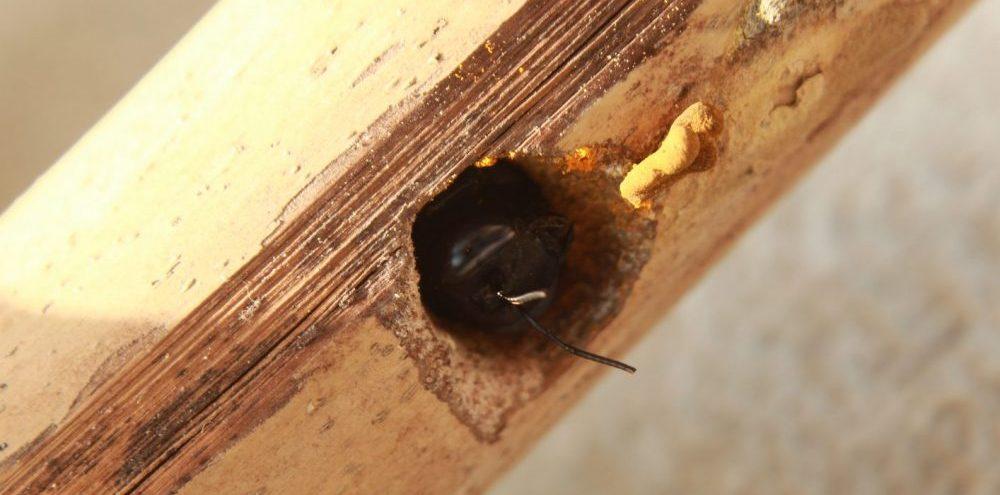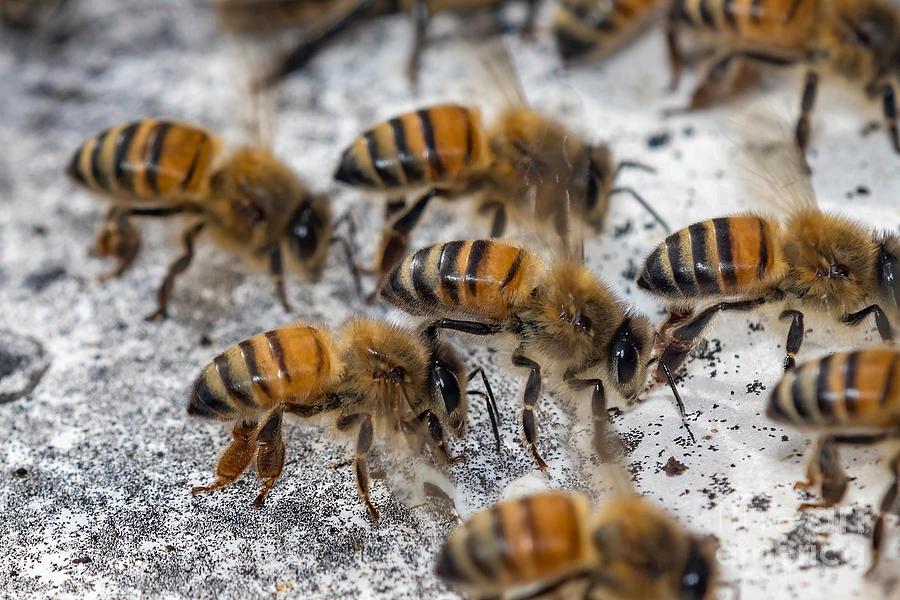
6 minute read
NATALIE 6C
Why do farmers use artificial/ chemical fertilizers instead of organic fertilizers? (Natalie 6C)
Natalie (6C) is a member of the Global Social Leaders Gardening team. One of the biggest threats to pollinators is the use of harmful chemicals and Natalie’s research has helped our team to find safe alternatives for SISQ.
Advertisement
Imagine one day you passed out and, eventually when you woke up, you were deserted on an island and you were starving to death. Suddenly you saw some oddly shaped strawberries and that was the only thing that you could find to eat.
Would you eat them or not?
And would you still eat them if you saw them being sold in a supermarket next to other “pretty” fruits?
I chose to research about organic fertilizers because this is one of the only topics that actually spoke to me and I wanted to know the dark truth behind why farmers use artificial/chemical
fertilizers instead of organic fertilizers. Personally, I think that we deserve to know this information because we deserve the right to know what has been added to the food we eat and why it is in our food.
To get other people's opinions from my school I have made a survey and sent it to several people For the first question (Why do you think farmers use artificial fertilizers instead of organic fertilizers?) a lot of people assumed that farmers use artificial fertilizers so that the fruits don’t end up “ugly” or so that they can grow faster. For the second question (What is the difference between organic and artificial/ chemical fertilizers. Which one is better and why?) Most people preferred organic methods because organic fertilizers don’t involve using chemicals or pesticides and because the organic fertilizers are healthy. For the third question (How much do you like foods with organic fertilizers?) more than 50% replied with that “I love them!” and approximately people answered with “I have no choice :/” and some people didn’t know. For the fourth question (How much do you like foods with artificial/ chemical fertilizers) More than 50% answered with they hated them or that they had no choice and around 10% said that the food with chemical fertilizers are delicious after the rest just didn’t know.
So let’s find out if my classmates are correct.
What is an organic fertilizer? Well an organic fertilizer is a fertilizer that doesn’t use pesticides and artificial chemicals but uses natural resources (for example compost, earthworms or natural animal poop). It can help the plants grow at a natural pace but artificial/chemical fertilizers
include pesticides and chemicals which is an unnatural way of growing fruits and vegetables but it makes the plants grow faster and avoids ugly looking produce.

(Ugly fruit campaign from Intermarche supermarkets)
Additional Information:
In addition to releasing nutrients, proteins and animal waste as organic fertilizers break down, they improve the stability of the soil and increase the ability to hold water and nutrients in the soil for a longer period of time. Over time, organic fertilizers will make your soil and plants in stable and perfect condition. The soil will also trap more carbon dioxide and reduce our school’s carbon footprint.
Organic fertilizers usually contain plant nutrients in lower concentrations but organic fertilizers have different advantages and disadvantages. They don't make a crust on
the soil as artificial fertilizers sometimes do. They improve water movement into the soil and, in time, add composition to the soil.
Micronutrient fertilizers involve: Boron, chlorine, copper, iron, manganese, molybdenum and zinc, which are often in short supply for growing crops. Let's take a closer look at the specific role of each micronutrient.
Boron: This important nutrient ensures healthy cell growth and assists in the formation of pollen.
Chlorine: an essential micronutrient in fertilizers because of higher plants and participates in multiple physiological metabolism processes.
Copper: There are 16 nutrients to survive and copper is in it for humans, plants and animals to survive so it is definitely important.
Iron: Micronutrients are needed in smaller quantities, but are also essential and iron is one of those micronutrients included in that list as well as that a good (human) health doesn’t only require enough calories but also sufficient intake of all essential nutrients that can be provided by fertilizers.
Zinc: has the same purpose as chlorine, copper and iron.
Manganese: Manganese (Mn), also known as “the activator,” (in fertilizers) is one of the nine most important and essential micronutrients for growing a healthy and delicious crop. Manganese’s main point in the fertilizer is to activate over 35 vital enzymes in the plant and plays an important role in regulating carbohydrate metabolism.
Molybdenum: Molybdenum is an essential trace element for the growth of plants. The amount that you
need in one fertilizer is a tiny amount, and when required, it can be supplied through specific fertilizers.
Survey Questions:
To get other people's opinions from my school I made a survey and sent it to several people and here are the people’s opinions.
For the first question (Why do you think farmers use artificial fertilizers instead of organic fertilizers?) a lot of people assumed that farmers use artificial fertilizers so that the fruits don’t end up “ugly” or so that they can grow faster.
For the second question (What is the difference between organic and artificial/ chemical fertilizers. Which one is better and why?) Most people replied because organic fertilizers don’t involve using chemicals or pesticides and because the organic fertilizers are healthy. For the third question (How much do you like foods with organic fertilizers) and more than 50% replied with that “I love them!” and a few people answered with “I have no choice :/” and some people didn’t know. For the fourth question (How much do you like foods with artificial/ chemical fertilizers) More than 50% answered that they hated them or that they had no choice and around 10% said that the food with chemical fertilizers are delicious after the rest just didn’t know. And those are all of the survey questions!
My personal opinion:
I have a very strong opinion about this topic that I am currently researching about and it was one of the things that led me to actually doing this topic in the first place. About 2 or 3 years ago I had a cat who I had had ever since the age of 3 and, after my 8th birthday, he passed away because there was this farm next to our cottage and every summer they added pesticides to the wheat so that it would grow faster so that they would be able to sell the bread after summer and he was wandering around the farm with the pesticides and sometimes even licked the wheat with the pesticides and then he was poisoned and passed away. And after that day that was when I was convinced that I should eat organic foods instead of foods with chemicals and artificial ingredients that we don’t know of are in our food and I hope that you will do the same.
In text citations:
The bibliography on the paragraph of; In addition to releasing nutrients, proteins… - todayshomeowner.com (https://todayshomeowner.com/debate-over-organicchemical-fertilizers/ #:~:text=In%20addition%20to%20releasing%20nutrients,an d%20plants%E2%80%93healthy%20and%20strong) - (Danny Lipford) | (LIPFORD)
The bibliography on the paragraph of; Organic fertilizers usually contain plant nutrients… - extension.oregonstate.edu (https:// extension.oregonstate.edu/news/heres-scoop-chemicalorganic-fertilizers) - (Kym Pokorny) | (Extension Web Support)
The survey that I sent out to the kids from G6-G7 at SISQ 2020: (https://docs.google.com/forms/d/1sFCirLLxE16LftEzmCHe-x2vZfinkhIRp4zfUKXU0/edit) - Created by Natalie Kvapilova
Observation taken place at: July 28th 2018 - Jičin Šebeňak
The bibliography from the last sentence of the conclusion; Not only that because pesticides… - pan-uk.org (https://www.pan-uk.org/health-effects-of-pesticides/ #:~:text=Pesticides%20are%20poisons%20and%2C%20unfo rtunately,from%20respiratory%20problems%20to%20canc er.) | (Claydon)
Most of these facts found from: My teacher for ISQH (Mrs. Claire Olivier) 2020 SISQ
Rating one of the fertilizers: (https://www.tfi.org/thefeed/fertilizer-101micronutrients#:~:text=Micronutrients%20include%20boro n%2C%20chlorine%2C%20copper,in%20the%20formation %20of%20pollen.) | (“Fertilizer 101: Micronutrients”)
Is chlorine an important nutrient?: (https:// www.tandfonline.com/doi/abs/ 10.1080/01904160903242417#:~:text=Chlorine%20(Cl) %20occurs%20predominantly%20as,in%20several%20phys iological%20metabolism%20processes.) | (“CHLORINE NUTRITION OF HIGHER PLANTS: PROGRESS AND PERSPECTIVES”)
Is iron essential in fertilizers?: (https://www.fertilizer.org/ public#:~:text=Micronutrients%20are%20needed%20in%20 smaller) | (“IFA-International Fertilizer Association”)
is manganese an essential nutrient in fertilizers?: (https:// omexcanada.com/plant-nutrition/know-your-nutrients/ manganese#:~:text=Manganese%20(Mn)%2C%20a.k.a. %20%E2%80%9C,role%20in%20regulating%20carbohydrat e%20metabolism.) | (Clark)
is molybdenum an essential nutrient in fertilizers?: (https://www.imoa.info/download_files/molyreview/ excerpts/13-2/Plants_need_molybdenum.pdf? m=1424600476&#:~:text=Molybdenum%20is%20an%20esse ntial%20trace,be%20supplied%20through%20specific%20f ertilizers.) | (Plants Need Molybdenum)







